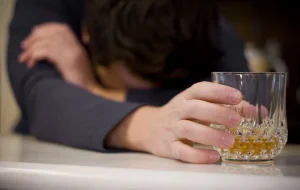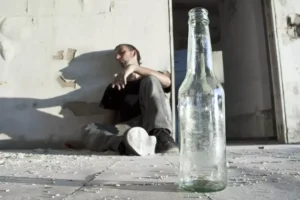03 May Substance Use Disorder Treatment

Outpatient programs can be in-person or using telehealth (meaning care online or over the phone). Telehealth can be a great way to receive care, especially for people who have a hard time getting to appointments. This is usually an option for first line treatment and for maintenance.
Outpatient Drug Treatment: Programs, Therapies, and What to Expect
Continued care in residential or outpatient settings or both is often needed to sustain abstinence and promote long-term recovery. Across settings, a course of AUD treatment is likely to be measured in months, not days or weeks. Therefore, people who take these medications can also participate in https://ecosoberhouse.com/ mutual support groups that advise members not to replace one drug of addiction with another. When you stop using alcohol altogether, you may experience withdrawal symptoms. The detoxification stage is the first step in the recovery process.
Types of Behavioral Treatments

We’re here 24/7 to help guide you or your loved on through rehab and recovery. Submit your number to receive a call today from a treatment provider. Aware Recovery Care offers an In-Home Addiction Treatment (IHAT) program, which allows you to stay home while all treatment comes to you. IHAT employs the best technologies and evidence-based treatments to help you along your path of recovery, while risk and disruptions are minimized. Alcoholism Treatment Program and Options This option allows you to start your recovery in your own way on your terms. The length of outpatient treatment varies depending on your level of need and progress.
Types of Treatment

This involves loved ones expressing their concerns about the person’s excessive drinking patterns. An intervention also helps to start the discussion about treatment and support options that are available. Outpatient treatment typically costs less than other, more intensive forms of treatment. Check with your insurance provider and review different program types, locations, and more. For those who lack insurance, some treatment centers offer sliding scale Twelve-step program fees.
Make A Decision That Will Change Your Life
Those looking into treatment options often encounter terms like OBOT and OTP to describe convenient and private outpatient recovery programs. However, the acronyms can often be confusing and overwhelming without deeper research. Once the concerns have been voiced, present concrete steps for seeking treatment. Research appropriate treatment facilities and programs beforehand so you can provide options to your loved one.
- 12-step programs are considered the gold standard by many for recovering from a substance use disorder or addiction.
- Self-guided programs such as these can be added to an overall treatment plan led by a health care professional.
- In outpatient programs, you return home at the end of a session.
- It can help you better understand the core cause of your thoughts and behaviors, so you can change unhealthy patterns.
- Some focus on other evidence-based approaches, such as cognitive behavioral therapy (CBT), dialectical behavior therapy (DBT), and relapse prevention.
Treatment programs are different for each individual and can be customized based on unique needs and situations. The most effective treatment programs ensure that individuals in recovery are actively engaged every step of the way. It will take a significant amount of willingness and continuous support to achieve and maintain long-term sobriety. A treatment center can provide the structure and support needed to succeed. The one that’s right for you depends on your situation and your goals.

If you’ve decided that outpatient is the route for you, then look for accredited outpatient programs with experienced professionals. You should be quick to seek recommendations from your healthcare provider or another trusted source. Because of this, outpatient rehabs are suited for individuals with mild forms of substance use disorders and a committed, disciplined approach to recovery. Outpatient programs are also an excellent “step-down” approach after inpatient treatment and are often combined with sober living homes. Outpatient treatment programs are another form of comprehensive substance use disorder care. These programs offer many of the same effective treatments and therapies as inpatient programs.

Support & Treatment
The most severe withdrawal symptoms generally surface within the first 24 to 48 hours after your last drink. Your treatment provider will be able to give you medications in order to help alleviate some of the pain. In the United States, there are many government-issued services and resources that can help with alcoholism. One of the most common, the Substance Abuse and Mental Health Services Administration (SAMHSA), serves as an information hub and treatment referral service. Additionally, more states are focusing on affordable treatment options to make sure anyone who is in need of treatment receives help. Unfortunately, with an increasing demand for alcoholism treatment services, many government-funded programs have wait lists and other requirements such as financial and medical need.
After they’ve acknowledged that they are in need of help, the next step is finding a treatment program that can help restore their overall health, well-being, and happiness. Outpatient alcohol treatment is a popular option for addressing alcohol addiction and other substance use disorders. Part of the appeal of outpatient treatment is that it allows you to continue living at home.



No Comments